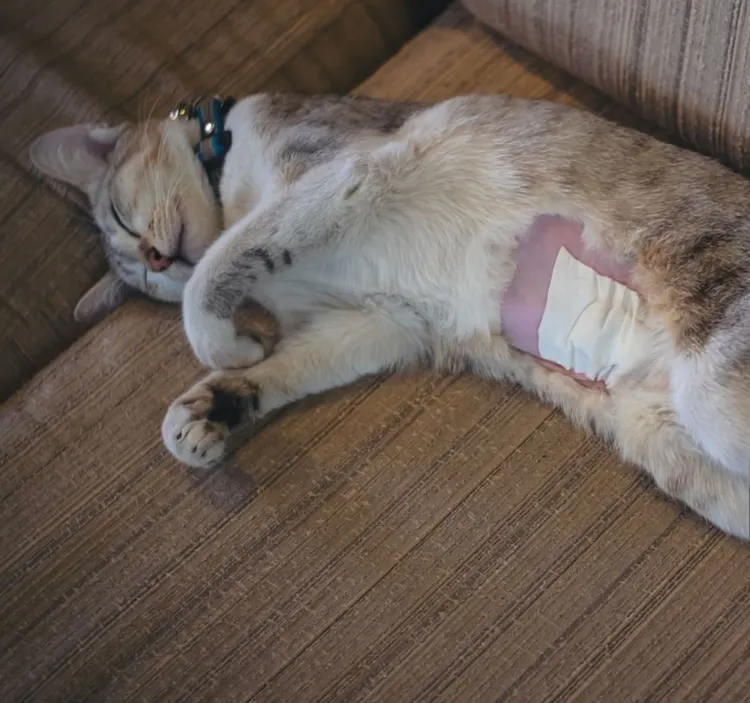Stomach cancer is a rare but serious condition that can deeply affect the lives of cats and their caregivers. Navigating this diagnosis involves understanding the disease, recognizing symptoms early, and exploring treatment options to make informed decisions that prioritize the cat’s quality of life.
1. What is Stomach Cancer in Cats?
Stomach cancer in cats typically involves malignant tumors that affect the cells lining the stomach. While rare, two of the most common types in cats are adenocarcinoma and lymphoma.
- Adenocarcinoma: Originates in the glandular cells lining the stomach and can be highly aggressive.
- Lymphoma: A cancer of the immune cells, often appearing in the gastrointestinal tract.
The progression of stomach cancer varies by type and can impact organs beyond the stomach, emphasizing the importance of early detection and timely intervention.
2. Symptoms of Stomach Cancer in Cats
Symptoms of stomach cancer in cats can often mimic other digestive or gastrointestinal issues. Common signs include:
- Vomiting: This may contain blood or bile and is usually frequent.
- Weight Loss: Rapid or unexplained weight loss often accompanies decreased appetite.
- Lethargy and Weakness: A marked decrease in energy and activity is common.
- Abdominal Pain: Cats may be sensitive to touch around their stomach.
It’s essential to observe any sudden behavioral or dietary changes, as early detection improves the potential for treatment options and outcomes. Regular veterinary check-ups play a crucial role in catching symptoms before they progress.
3. Diagnostic Process
The diagnostic process for stomach cancer in cats includes several steps to confirm the presence of cancer and determine its type and stage:
- Physical Examination: The vet will check for abdominal swelling, pain, and any abnormal masses.
- Blood Tests: These help detect general health markers, signs of infection, or abnormal cell counts.
- Ultrasound or X-Rays: Imaging techniques allow vets to view internal organs and identify tumors or abnormalities.
- Biopsy: For a definitive diagnosis, a biopsy is often required. This procedure involves extracting a small tissue sample from the stomach for laboratory analysis, confirming the type of cancer.
4. Treatment Options
Treatment options for stomach cancer vary based on the cancer’s type, location, and the cat’s overall health. Here are the main approaches:
- Surgery: If the tumor is localized, surgery may be performed to remove the affected part of the stomach.
- Chemotherapy: This may be recommended, especially for lymphoma, to slow the spread of cancer cells. Side effects and response vary widely.
- Palliative Care: For cases where surgery or chemotherapy are not options, palliative care focuses on pain relief and symptom management to improve quality of life. Anti-nausea medications, appetite stimulants, and dietary adjustments can provide comfort.

5. Prognosis and Quality of Life
The prognosis depends on the type and stage of cancer when diagnosed. For instance, localized tumors caught early may respond well to treatment, while advanced stages tend to have a poorer prognosis. Supportive care can significantly improve comfort, even in cases where remission isn’t likely.
Maintaining quality of life includes adjusting the cat’s diet, managing symptoms like nausea, and providing a low-stress environment. Regular vet check-ins ensure the treatment plan remains tailored to the cat’s needs as the condition progresses.
6. Support for Owners
Facing a diagnosis of stomach cancer in a beloved cat can be emotionally overwhelming. There are resources and support networks available for caregivers navigating this journey:
- Support Groups: Pet cancer support groups can provide comfort and shared experiences with others facing similar situations.
- Educational Resources: Foundations such as the Pet Cancer Foundation offer information and resources to help with decision-making.
- Veterinary Counseling: Many veterinary clinics offer counseling or can refer pet owners to specialists who provide emotional support and guidance.

Conclusion
Stomach cancer in cats is a challenging condition, but understanding the symptoms, diagnostic process, and treatment options can empower cat owners to make compassionate, informed decisions. Working closely with veterinarians, focusing on quality of life, and accessing support resources can help navigate this journey with strength and love.



